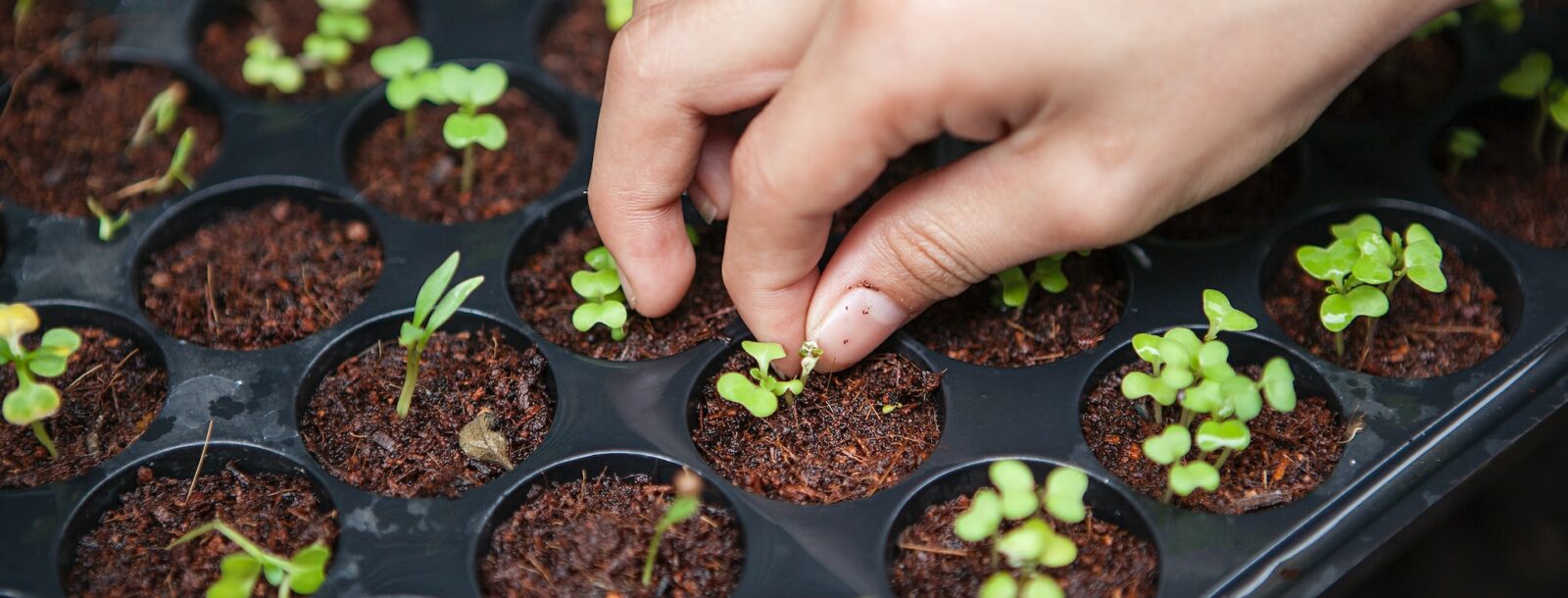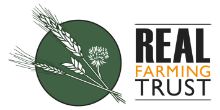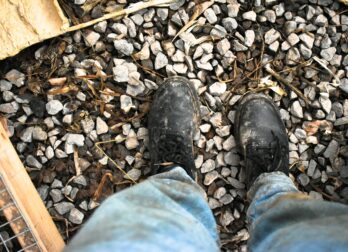
The challenge of delivering social impact
By Rob Wannerton
The Food for Thought report published today by the Real Farming Trust has revealed the challenges community food businesses face in delivering social benefits. Author Rob Wannerton shares the findings.
One of the underpinning beliefs of the Real Farming Trust (RFT), indeed of the sustainable food movement, is the need for wholesale transformative change of the dominant western food system which drives so many of the problems we face, from climate change, biodiversity loss and soil degradation through to population health and modern slavery. As RFT co-founder Colin Tudge puts it in his book The Great Rethink: “Agriculture affects everything else and is affected by everything else. Get it right and we could, with luck and a following wind, get everything else right as well.”
We know that agroecology, as a participative and all-encompassing approach to defining and constructing a food system, offers the best chance of tackling global challenges by harnessing grass roots activity – a view supported by the Food and Agriculture Organisation (FAO) of the United Nations. An integral part of the FAO’s Common Vision for Sustainable Food and Agriculture, agroecology has ten defining elements. These give social and ecological principles equal weight, recognising that meaningful system change has to go beyond a shift in production methods, and must include structural, individual and cultural aspects. Funders and policymakers are now considering social outcomes in their impact expectations but there are few indicators or widely agreed measures of success, and there is uncertainty over who pays the cost.
Through the lens of the FAO’s broad definition of agroecology, social justice and equity are as important as crop diversification or resource management for a truly sustainable food system. It’s this interconnectedness which we look to support through our funding programme, LEAP. LEAP provides affordable loans, grants and business mentoring to community food businesses such as Community Supported Agriculture Schemes (CSAs) and other innovative land-based food and farming enterprises. In addition to this practical support, every business LEAP invests in receives a small grant to help assess and develop their social impact. Coventry University Centre for Agroecology, Water and Resilience (CAWR) provides research capacity and impact expertise to work with RFT and LEAP businesses, supporting them to assess and develop their social impact.
Our new Food for Thought report shares the findings from this ongoing research, identifying common themes in the issues and barriers community food businesses (CFBs) face including difficult discussions about the scale of the challenge, as well as posing some questions for future investigations. At this relatively early stage in the programme, we are reporting on work undertaken with eight CFBs; over the next year, as the remaining funds are allocated, we expect this to increase to twenty businesses, operating in different parts of the UK. Through interviews, focus groups and surveys, we have heard from customers of market stalls, veg box schemes and independent shops, and heard about the experiences of paid staff and volunteers. We’ve asked about the difference these businesses have made to people’s sense of community, to their health and wellbeing, and their consumption practices. We’ve heard about the reasons people connect to these types of community-oriented businesses, and sometimes why they don’t connect.
We’ve been privileged to have this level of access to these networks, and although we have to be careful about broadening the results from a very specific group of businesses and self-selecting respondents in the case of customers, our research highlights some of the physical and cultural barriers that are going to impede the movement’s ability to achieve wider goals of system change.
Referring back to the FAO’s ten elements of agroecology, what is becoming increasingly clear is that whilst the environmental benefits are, to a large extent, embedded in the plans of these businesses from the start, social impacts are often more tangential. There may be aims to improve health and wellbeing by extending access to fresh produce, or intentions to provide good jobs, but primarily the selling point of these businesses is environmental, with customers who participated in our research overwhelmingly reporting that they are drawn by factors such as reduced packaging, eating seasonally, and lowering their carbon footprint through reduced food miles associated with local food.
On the one hand, this is a reflection of the contemporary realities of running a business in a viable and sustainable way, responding to consumer demands and trends. After all, as one of the business founders put to us, you have to choose your battles – persuading one person to switch a few pounds of their food spend from a supermarket to a local vegbox is a positive switch, and can typically lead to other behavioural changes. If an individual business is able to operate successfully and make some positive changes in their local communities, improve biodiversity and mitigate climate change, then this is to be celebrated, and every single one of the community food businesses we work with should be held up as broader sustainability champions for doing this.
However, the research findings flag a number of concerns, both for individual businesses and for the wider sustainable food movement.
Delivering social impact requires resources that most community food businesses do not have. Yet there are expectations both within and outside the organisations that they can and should deliver these social benefits without any clear idea of how, and who pays for it. This financial pressure is compounded by an economic outlook best described as uncertain, where the positioning of agroecologically-produced food as niche or luxury makes businesses increasingly vulnerable. Even in a time of economic growth, the UK was hooked on cheap food, and although studies such as this recent report from University of Oxford show that a sustainable diet can be cheaper, it is dependent on a switch to vegetarian, vegan or flexitarian diets, something which is still a hard sell to the population at large and is arguably held back by its links to privilege.
To go beyond the existing customer base that connects to the mission, there is a perceptual barrier to be overcome – as Michael Pollan puts it, eating is a political act, but one which many people fail to connect to, and a suspicion of aligning to an alternative movement may be a barrier in a food culture where a weekly trip to the supermarket is the norm. The 2020-21 lockdowns gave a shock to the food system which led to many community food businesses experiencing a surge in new customers, only to see a subsequent drop-off when normal life resumed, showing how fragile these connections can be. Our research highlights that in part this is linked to comparisons with supermarkets based on factors such as price, choice, and convenience.
The research also raises questions about the nature and extent of the communities being served. Again, if the focus of the business is environmental impact then the customer base is of little consequence, but there are questions to be asked about the scale of likely health and wellbeing impacts on a customer base with high social and economic capital, already able to make well-informed choices and well-served by businesses and services. In short, there is the risk of ‘preaching to the choir’, which is potentially self-reinforcing in terms of selective community and customer engagement.
Looking at those delivering the business outcomes, our work with founders and employees highlights the uncomfortable truth that regardless of the intentions to offer “good jobs”, the reality of jobs in the food sector is that they are often physically demanding, can be lonely or isolating, repetitive, and perceived as low-skilled. Despite this, businesses are often able to attract highly qualified people as employees or trainees, knowing they could be paid more elsewhere, because of their connection to the mission and reciprocation of shared sustainability values. Amongst our research cohort of businesses, employees and customers were often ‘incomers’ from other regions of the country, leading to discussions about the relationship between the business and the local, geographic community, landscape and fabric in which it is physically situated and embedded.
Whether because of the practical economics of running an ethical and sustainable business or the cultural baggage tied to concepts of “good food”, individual businesses, short supply chains and local food networks run the risk of creating or sustaining bubbles of privilege despite their efforts to deliver social impact amongst a wide variety of people in their local communities.
Our report concludes with a series of questions for future investigation. It challenges organisations like the RFT, CAWR and other sector supporting organisations to think about the expectations being placed on small businesses to deliver social impact in a food culture and economy largely stacked against delivering agroecology and sustainability, and consider who pays for it – because if we as a movement get it right, we could get everything else right as well.
Acknowledgements
Loans for Enlightened Agriculture Programme (LEAP) is a £1 million funding programme supported by three social investors – Esmée Fairbairn Foundation, The Centre for Innovation in Voluntary Action (CIVA) and The A Team Foundation – and grantors, The Halleria Trust and the Power to Change Foundation. We would like to thank them for their ongoing support and give particular thanks to the people in the food businesses and their networks who have given us their time and participation in the research.




